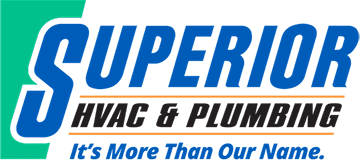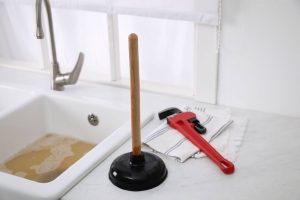There’s nothing quite as unpleasant as walking into your home and being hit with a foul odor. Usually, if the stench is coming from your sink, bathtub, or shower drain, the culprit is a clog. The odor you’re smelling is likely the result of bacteria feasting on the debris trapped in your pipes. Here’s a guide to tackling the problem head-on – and knowing when it’s time to call in the professionals.
What Causes a Clogged Drain?
Clogs can happen for a number of reasons. Typically, they occur when hair, soap scum, grease, food particles, or other debris accumulate in your pipes. Over time, this buildup restricts the flow of water, leading to slow drains or complete blockages. The stagnant water and trapped debris become the perfect breeding ground for odor-causing bacteria. In short, a clogged drain isn’t just a plumbing nuisance; it’s a recipe for unpleasant smells and potential water damage.
How to Clear a Clogged Drain
If you suspect a clog, don’t panic! Here are some steps you can take to address the issue:
1. Boiling Water Flush
Try this simple solution first. Boiling water can often dissolve minor clogs caused by grease or soap scum. Carefully pour a kettle of boiling water down the drain in two or three phases, allowing it to work through the clog between pours.
2. Plunge the Drain
Many people don’t realize this, but a plunger isn’t just for toilets. Use a sink or drain plunger to create suction and dislodge the clog. Ensure that the plunger has a good seal around the drain, then use quick, forceful motions to push and pull. Be patient as this sometimes takes a little while to work.
3. DIY Drain Cleaner
Home remedies for clogged drains work too! Skip the harsh chemicals and opt for a natural alternative by combining one cup of baking soda with one cup of vinegar and pouring the mixture down the drain. Let it fizz and sit for about 30 minutes before flushing with hot water.
4. Remove the Drain Cover
For visible clogs, remove the drain cover and use a drain snake or bent wire hanger to fish out hair and debris. Be sure to wear gloves and have a trash bag ready – it’s not a pretty sight (or smell)!
When to Call a Professional Plumber for a Clogged Drain
While many clogs can be handled with DIY methods, some situations call for expert clogged drain cleaning services. You don’t want to damage your pipes or let the clog fester, so here’s when you should reach out to a professional:
- Persistent Odors
If foul smells linger even after you’ve cleaned the drain, the clog may be deeper in the pipes, where DIY tools can’t reach. - Recurring Clogs
A drain that repeatedly clogs could indicate a larger issue, such as damaged pipes or a blockage in the main sewer line. - Water Backups
If water backs up into your sink, tub, or shower when you run water elsewhere in the house, it’s a sign of significant blockage that requires professional tools to resolve.
How Professionals Can Help
When you call a plumber, you’re bringing in an expert equipped with specialized tools and expertise to fix the problem quickly and effectively. Here’s are some ways they may address a clogged drain:
1. Video Inspection
A plumber can use a small camera to inspect your pipes and pinpoint the exact location and cause of the clog.
2. Drain Snaking
For tough clogs, plumbers use motorized drain snakes, which can reach deep into pipes to break apart blockages.
3. Hydro Jetting
This high-pressure water technique clears stubborn clogs and cleans the inside of your pipes, preventing future issues.
4. Pipe Repair or Replacement
In cases of severe damage or corrosion, your plumber may need to repair or replace sections of pipe to restore proper drainage.
Related: Preventing Clogged Drains and Water Damage: What You Should Know
Preventing Future Clogged Drains
While these are useful practices, the best way to handle a clogged drain is to prevent it from happening in the first place! Here are some important tips to avoiding clogs:
- Use drain strainers to catch hair and debris.
- Avoid pouring grease or oil down the drain.
- Run hot water through your sink after each use to help flush away residue.
- Schedule regular professional drain cleaning to keep your pipes in top shape.
A smelly, clogged drain is no one’s idea of fun, but with a little effort and know-how, most minor clogs can be resolved without too much hassle. If you can clear a clogged drain and take preventative measures, you can keep your home smelling fresh and your drains running smoothly. However, for persistent or severe issues, don’t hesitate to call Superior HVAC & Plumbing for expert clogged drain service. We offer 24/7 emergency services, fast response times, reliable service, and guaranteed customer satisfaction, so you never have to wonder about that weird smell in your sink ever again.

